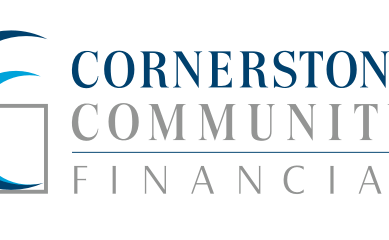Although the recent pandemic has brought the subject to the forefront, working remotely is an alternative for employees and employers that has been steadily rising in popularity. A report from FlexJobs and Global Workplace Analytics finds that over the past five years, the practice has grown 44% and that 74% of survey respondents believe working remotely has become the “new normal.” In our current situation, these numbers are bound to rise.
There are a number of advantages to working remotely. From the same survey, respondents (which included employers) said that it increased morale, decreased stress, and with the correct environment, employees felt they were more productive. Remote employees also stay healthier and make a positive impact on the environment by commuting less.
Keeping things safe and secure – the practical
But working remotely is more than just rolling out of bed, jumping on your couch, opening a laptop and getting to work. Following the guidelines from your employer that outline the conditions of working from home must be understood and agreed to. Keeping your hardware, software, and credit union data safe from hackers and malware is paramount. Creating a productive and positive work environment for yourself is also very important.
So whether you are working remotely for the first time as a result of the pandemic or are planning on making this a permanent aspect of your career, there are a number of steps and precautions to consider that will increase your chances of success and help make it a win-win situation for both you and your employer.
First things first
Although what follows is a series of common-sense suggestions about successfully navigating a working-from-home scenario, keep in mind that your manager and your IT and HR teams are your best resources for guidance when it comes to policy and requirements specific to your organization or credit union. If you’re unsure about how to proceed with a piece of hardware or software, your credit union’s policy, or state/national laws surrounding this topic, seek their advice.
Working remotely is likely to involve using either your own laptop or desktop computer, or one from your organization. Either way, ensuring that company property (as well as client or member data) is not compromised in any way as a result of your new work venue is imperative. The “bad guys” — hackers, identity thieves, etc. — are very aware of the current uptick in employees working remotely (some for the first time) and are looking for ways to take advantage.
Make sure you have the right stuff
Working remotely requires having a fast and secure internet connection that can handle the additional traffic that’s likely to occur, especially if you’re going to be using web conferencing software. If others in your household are also working from home at the same time, you may need to get upload and download details from your service provider to ensure you’re good to go. Your IT department may be able to help with this. One credit union, for example, is providing employees additional pay per month to offset the cost of upgraded internet service.
Clean house and build a secure bridge
If you are using a home computer, you are likely to be required to perform a sweep of your drive to guard against any pre-existing viruses or malware. Take this step seriously as many of these threats can exist on your drive for months waiting for an opportunity to strike. Once your drive is clean, you can focus on connecting to your credit union server.
Regardless of which hardware you use, you are likely to receive instructions from your IT department. Much of this information will be about creating and maintaining a secure connection between your home and company servers using a Virtual Private Network (VPN).
VPN adds an additional layer of security for transmitting information over the internet and is essential for secure communication between you and your workplace. This protocol is offered by a number of third parties, but your credit union is likely set up for a single application in conjunction with your operating system and specific security needs. Never download a VPN client without specific instructions from your tech team.
Watch for thieves hiding in plain sight
Remember that the “bad guys” are looking for every opportunity to infiltrate your computer and your credit union’s network, and email is one of the easiest ways to accomplish this. Look for emails from unknown or unrecognizable sources, especially ones that have embedded links or attachments.
Cyber thieves are likely to use the current COVID-19 situation as a method to get you to click on a link or download an attachment by impersonating a governmental or health agency. It is better to err on the side of caution. If you’re unsure about an email, contact your IT department for guidance.
So now that we’ve covered the practical side of things, and we’ve made sure everything is secure, how do we go about keeping ourselves professional (and sane) while at home? Stay tuned.































































